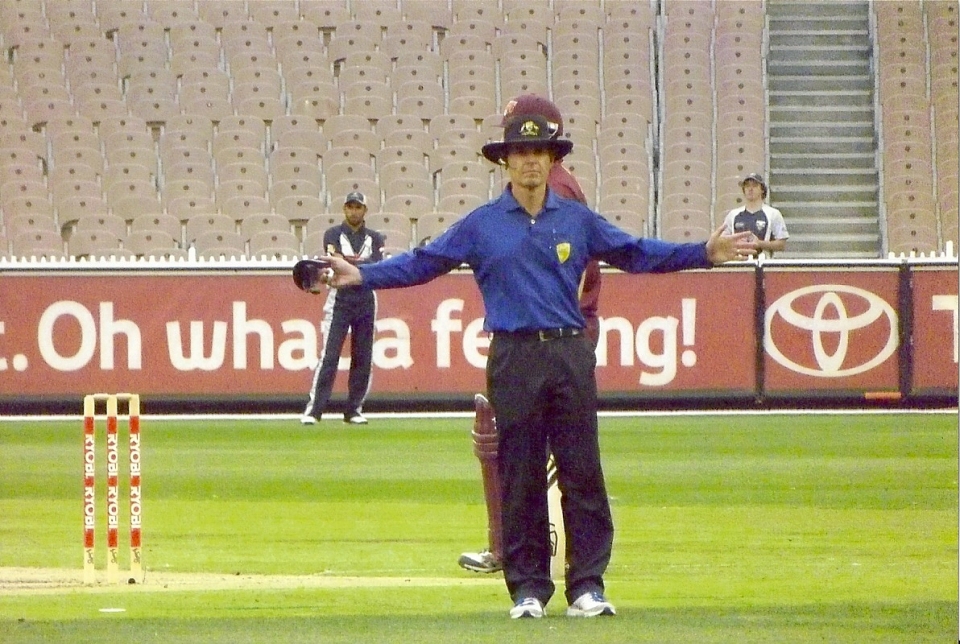Australia is on a high after recording a crushing defeat in the 1st Ashes test in Brisbane. As is so often the case in Test cricket, the outcome of five days of cricket can be traced back to just one session, on the afternoon of the 2nd day when a fiery Mitchell Johnson, combined with the guile of Nathan Lyon tore England apart. The unexpected result, combined with the malice between the two teams exhibited throughout the match has set the scene for an enthralling series.
Having won the toss and batted, it appeared at first that normal transmission had resumed when Australia was 5/100 after the loss of Bailey. The England bowling attack, whilst far from sublime, made regular inroads in the Australian first innings, spear-headed by Stuart Broad, who was eager to rebuff a hostile crowd. Wickets fell not so much on account of sublime bowling, but sustained pressure from England. Clarke was found out by a well-directed short ball from Broad, whilst Warner who was the pick of the batsman early in the day was dismissed tamely, hitting a ball straight to short cover on 49. Johnson and Haddin batted well to add 114 for the 7th wicket, but in the end Australia’s first innings total of 295 appeared somewhat sub-par on a good batting track. England appeared relatively comfortable at 1/55 before Johnson, bowling with both pace and malice dismissed Trott on the stroke of lunch on day 2.
It was then that a session which will doubtless be remembered as seminal in the outcome of this series began. A fired up Johnson, reaching speed in the high 140s bullied his way through the English middle order. It was in fact the rather innocuous dismissal of Pietersen by workhorse Ryan Harris which began the slide, as Pietersen chipped a ball to midwicket. Johnson then unleashed a barrage of quality pace bowling, with judicious use of the short ball. First, he dismissed Carberry, who had looked solid for 40. Then, at the other end, the oft underestimated Lyon claimed two wickets in two deliveries, having both Bell and Prior caught by Smith at short leg. Root then went to an ill disciplined shot, before a fearsome Johnson softened up the tail, claiming one further wicket in mopping up the tail along with Harris and Siddle.
The second innings for the Australian’s commenced with some players having question marks over them. Warner, having played well in the first innings for 49 was clearly eager to prove himself as a test batsman, whilst all eyes were on Clarke and his ability to deal with the short ball after his first innings dismissal. The two responded superbly, silencing their critics with a 158 run 3rd wicket partnership. Clarke commenced his knock by calmly dispensing two short balls to the boundary, and by the time Warner fell caught behind for 124, the game was just about out of reach for England. Clarke silenced his doubters with a comprehensive 113. Bailey had his first decent test knock, making 34, before another stellar partnership between Haddin and Johnson set up a declaration on the 3rd evening, with England set an unlikely 561 runs for victory.
For the second time in as many days, the atmosphere at the Gabba was electric, as the Australian bowlers went after the English top order in the late afternoon in Brisbane. For England, the only real positive to be had was survival to stumps, whilst the Australian’s smelt blood in the dying light. Carberry went first, unlikely blocking a ball which bobbled back on to his stumps. This brought out the out of sorts Trott, who David Warner had described rather tactlessly as having ‘scared eyes’ in the first innings. A barrage of short pitch bowling ensued, which ended with Trott caught at deep square leg from Johnson. Cook and Pietersen survived to the end of the day’s play, but by then the damage had already been done.
England resumed on the fourth day attempting to maintain at least a façade of hope. Cook and Pietersen batted well in the first hour before Pietersen fell, yet another Englishman caught in the deep to a Johnson short ball. Bell batted well for 32 before falling caught behind to Siddle. A heavy storm which included hail caused a delay of over an hour with England four down, but when play resumed, so did the demolition. Lyon again proved his worth, dismissing Cook with a bouncy delivery caught behind, before outsmarting Prior, caught at leg slip. Johnson then dispatched Broad and Swann with more well directed pace, leaving England in tatters. Rain then again stopped play, seemingly delaying the inevitable to a 5th day, with England 8 down.
It was not to be however, with the players getting back on the field at 5pm local time. In spite of the seemingly dead state of the match, there was much malice exuded between the two teams, which along with the resurgence of Johnson will be amongst the talking points heading into the next match. Tensions flared with the field close in and Harris and Johnson bowling with their tails up. Johnson and Anderson engaged in heated discussion after the latter came to the crease. Matters came to a head with Anderson allegedly threatening close in fielder Bailey, leading to Clarke remarking, as overheard on the stump microphone, the Anderson should prepare to receive a broken arm from the fired up and angry Johnson. A short time later he was caught and bowled from a rising delivery from Johnson, who responded with an exaggerated celebration, before receiving an earful from Peter Siddle as the Australians celebrated.
England is down but not out in the series, and things are set for an enthralling second match in Adelaide commencing Thursday week. England will play a tour match against a Chairman’s XI in Alice Springs this week, with many batsmen eager to find form. They will also have to find a replacement for Jonathan Trott, who has returned home due to stress related issues. The Australians meanwhile will at least for now sit back satisfied with having landed an unexpected blow on the old enemy.
Also published at theinfinitive.com.au

